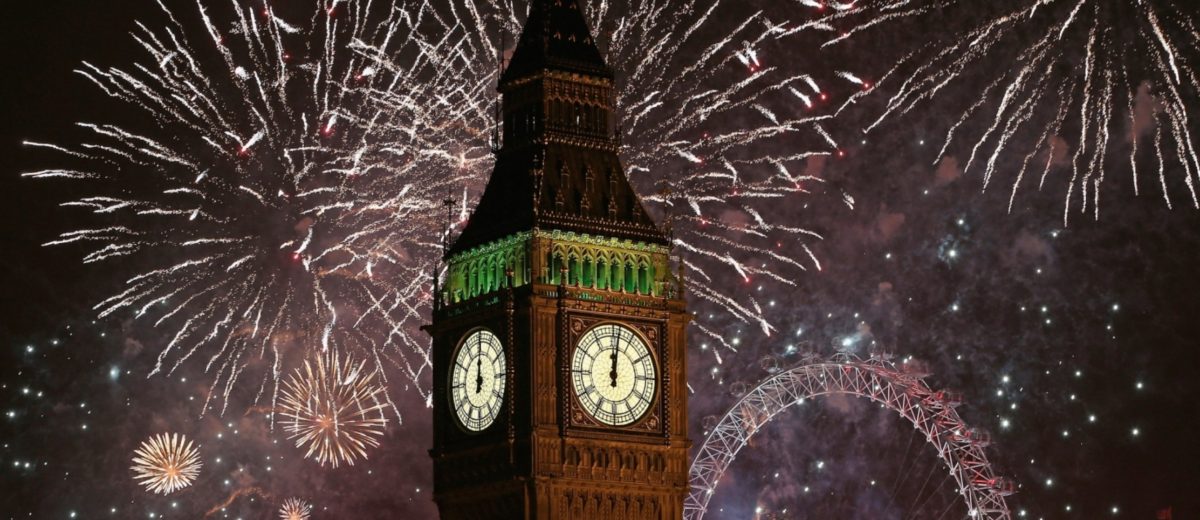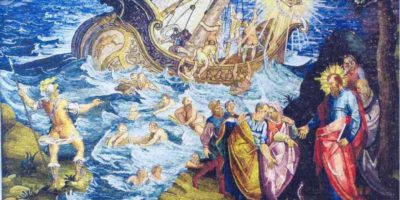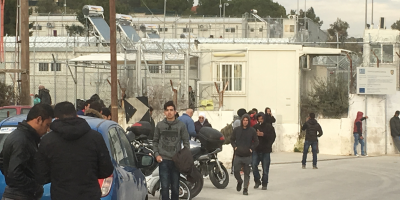Spectacular displays of fireworks welcomed the New Year in yesterday around the world from Auckland’s Skytower to London’s Big Ben, a tradition originally believed to chase away demons.
If only ghost-busting was that easy.
For New Year predictions include the return of the old demons that have haunted Europe’s past, spirits unfamiliar to unsuspecting postwar generations for whom peace and prosperity have been the expected norm. War–at least in our backyard–had become unthinkable, in fulfilment of the dream of the founding fathers of the European project. That project was meant to lay to rest the ghosts of exclusive nationalism, racism, anti-semitism and fear-inducing demogoguery. Their vision, as Robert Schuman expressed it, was for Europe to become a community of peoples, deeply rooted in basic Christian values of peace, freedom, human dignity and solidarity.
That dream climaxed a quarter of a century ago with the collapse of communism, releasing Central and Eastern Europe from Moscow’s grasp. Those were exciting, heady days when values such as brotherhood, common good, equality and open borders were celebrated. Some even talked of the ‘end of history’ and the final triumph of western liberal democracy.
Night of euphoria
A few weeks ago in Tallinn, Estonia, I recalled these days at the European Christian Youth Parliament with an audience of Europeans too young to remember that night of euphoria when the Berlin Wall was broken open; or the Singing Revolution when the great Baltic song festivals became occasions to rebel against communist tyranny; or when their parents and grandparents joined hands in the great Baltic Human Chain across three nations; or when Lithuanians re-planted crosses on an ancient sacred site, the Hill of Crosses, after authorities bulldozed them away.
They had never tasted the excitement of the Solidarity trade union movement in Poland led by Lech Walesa and others, encouraged by Pope John Paul II; or the Prayer and Peace rallies in Leipzig where many thousands protested in song and non-aggression. They knew nothing of the Pan-European Picnic on the border of Hungary and Austria, August 1989, attended by 10,000 people looking forward to the day of open borders, and hundreds burst across the border to freedom putting the border guards to the test. They had only vaguely heard about the Velvet Revolution in Prague which catapulted the playwright Vaclev Havel from prison to the president’s palace.
Now almost a full generation later, my audience could remember the hope and expectation aroused when their nations joined the EU last decade. But promises of collective security and welfare had today given way to a general sense of unfulfilled expectation, disappointment and disillusionment, anger and frustration.
For with the close of the year that brought us Brexit and Trump, Aleppo and Berlin, an era that began with the founding of the UN, NATO and what has become the EU seemed also to be closing. I apologised to my young listeners that my generation was bequeathing them a Europe fearful about the future, uncertain about tomorrow, a Europe facing serious threats from within and without, a Europe at the crossroads.
I quoted to them the words of the Slovakian Prime Minister spoken just a few days earlier: “Only a madman would want to roll back the centuries of developments of human rights and civil society. Yet today …there is a clear and present danger which many of us thought we would not see reincarnated again. It is the rise of nationalism, extremism and racism. … We suddenly feel as if the unpleasant history of Europe is returning.”
Back in 1992, Sir Fred Catherwood, former vice-president of the European Parliament, had warned that while we had swept our European house clean of fascism and of communism, we also now had a Europe emptier than before of the Christian faith. Europe was a house swept clean, ready for seven devils worse than the first to enter.
New realities
As this new year begins, we need to wake up to the new realities and challenges ahead. More than ever, as I told my young audience, Europe needs peace-makers, bridge-builders, hope-bringers and history-makers. We need to understand the changes happening under our very noses. We need to be encouraged with stories of how faithful and creative minorities can make a difference.
To this end, we invite you to the following equipping opportunities this year:
• the European Studies Course, in Brussels on the fourth Saturday of each month from January to June, presenting biblical perspectives on Europe’s past, present and future;
• the State of Europe Forum, in Valetta, Malta, May 7 &8, on Hope, Healing and Hospitality; and
• the Continental Heritage Tour, July 1-16, on the 500th anniversary of Luther’s Reformation, visiting 40 locations including Wartburg Castle, Wittenberg, Zurich, Geneva, Basel and Strasbourg.
For the light of Jesus shining in the darkness is far more effective than any fireworks.
Till next week,



